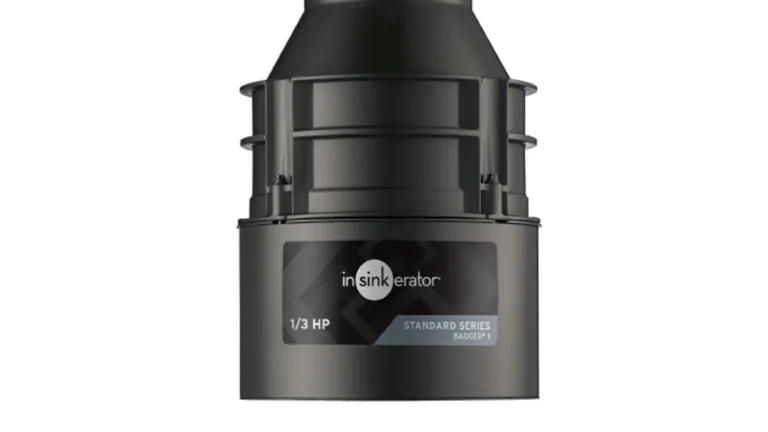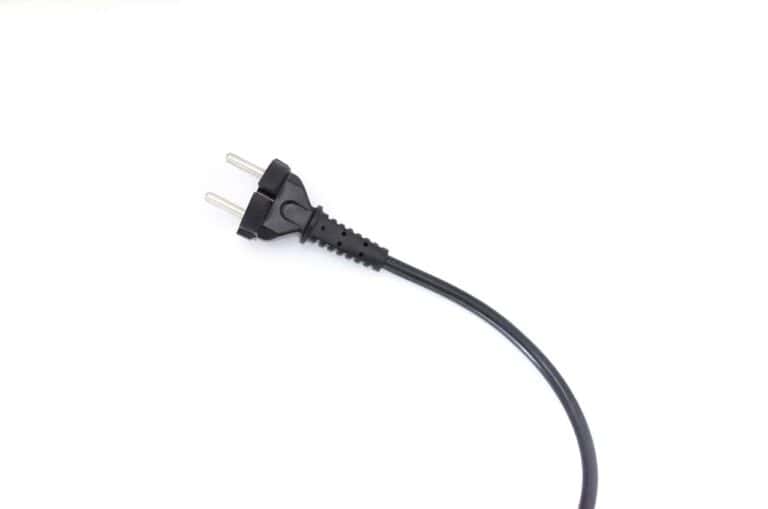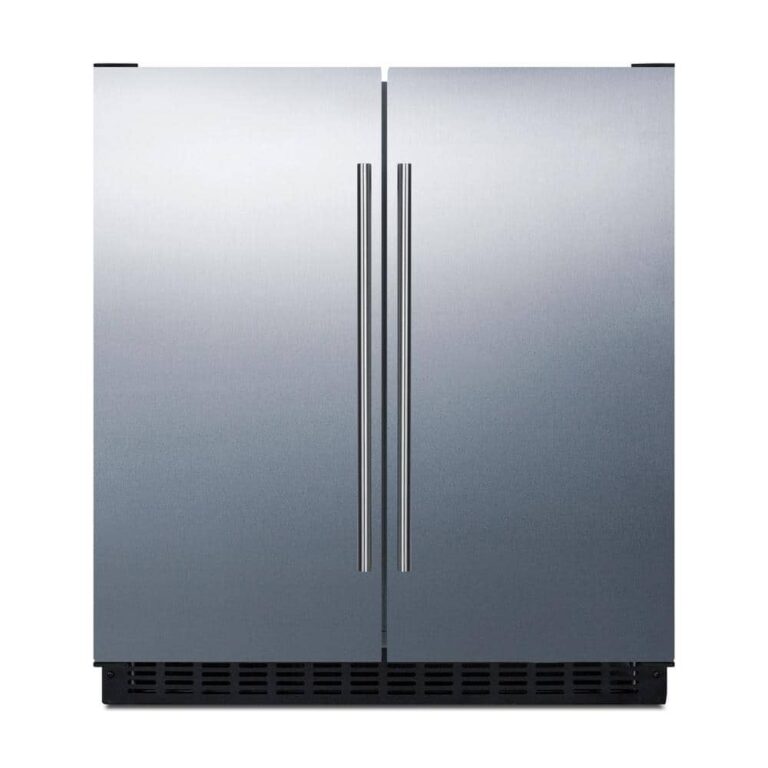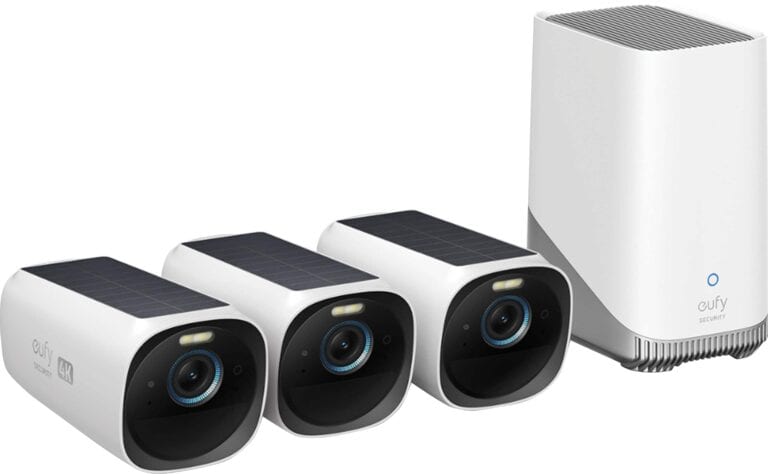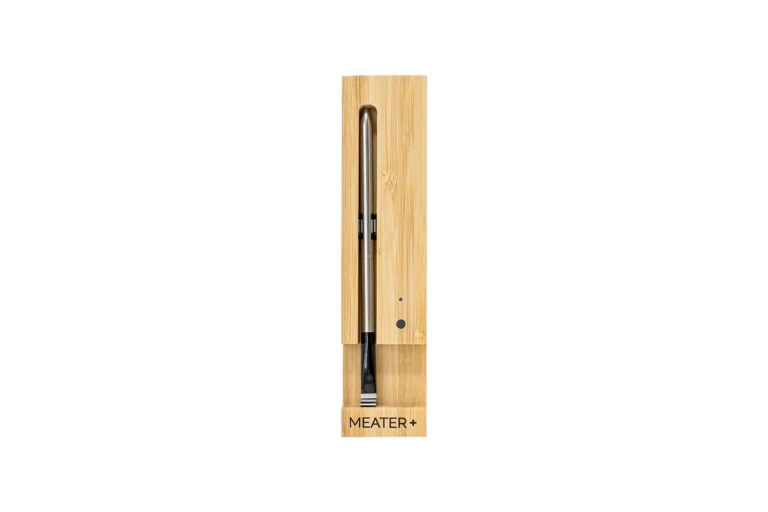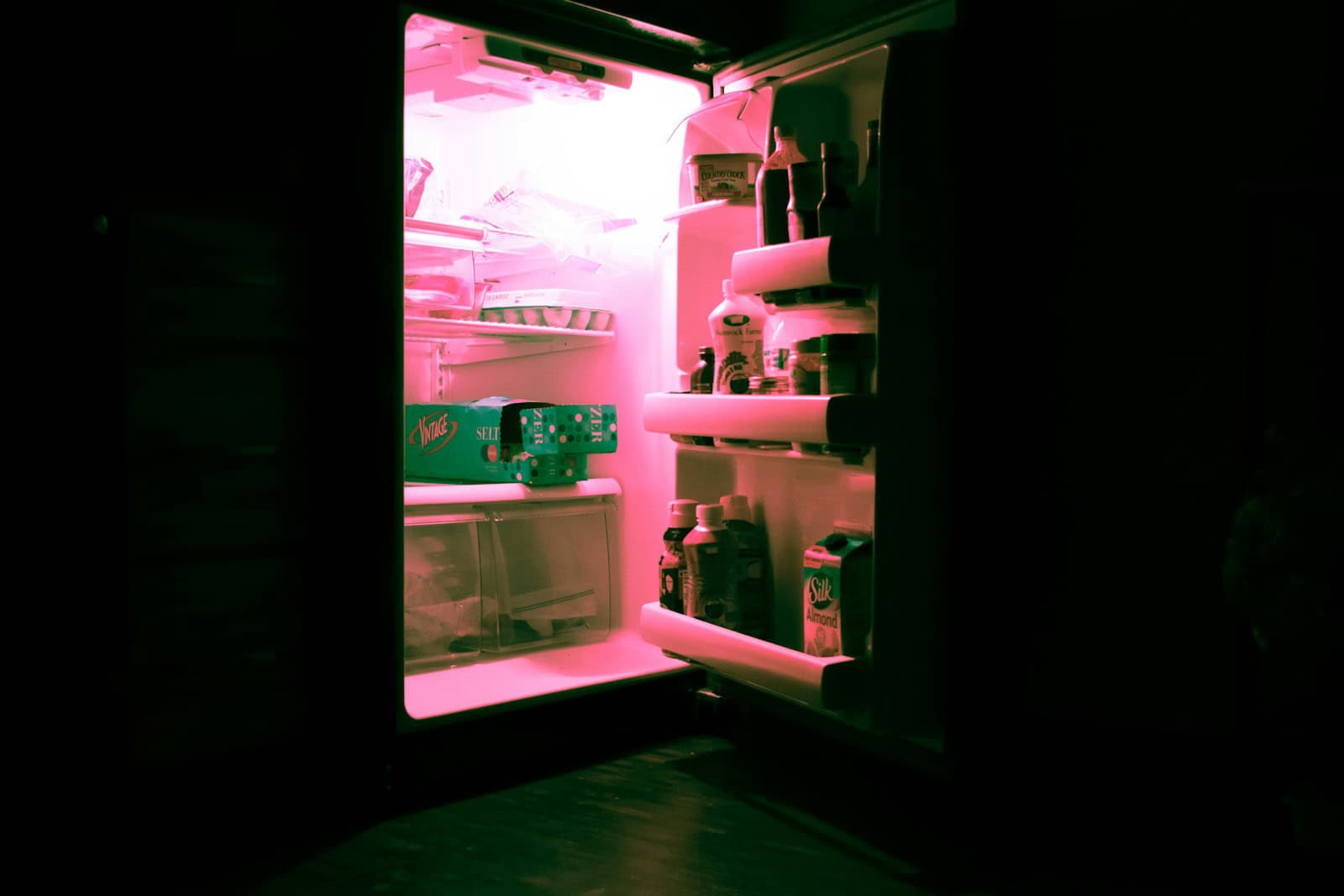
A leaking refrigerator can be a frustrating problem for homeowners. Water pooling on the floor or inside the fridge indicates an issue that needs attention. A refrigerator leaking water often signals a blocked defrost drain, a damaged water line, or a malfunctioning ice maker.
Several factors can contribute to refrigerator leaks. A clogged defrost drain is a common culprit, causing water to back up and overflow. Damaged water supply lines or loose connections may also lead to leaks. In some cases, an overfilled or improperly leveled refrigerator can cause water to spill out.
Addressing a leaking refrigerator promptly is crucial to prevent water damage and ensure optimal performance. Simple fixes like clearing a blocked drain or tightening connections can often resolve the issue. However, more complex problems may require professional repair.
Troubleshooting a Leaky Refrigerator
A leaking refrigerator can be a messy and worrying problem. But before you call a repair technician, there are a few things you can check yourself. Many common causes are simple to fix. Here’s a breakdown of why your refrigerator might be leaking water and how to address it:
1. Blocked Defrost Drain
- Cause: Frost build-up can block the defrost drain, causing water to overflow and leak. This is common in frost-free refrigerators.
- Solution: Locate the drain hole (usually at the back of the freezer compartment) and clear any blockage with a pipe cleaner or warm water. You may need to consult your refrigerator’s manual to find its exact location.
2. Clogged Water Filter
- Cause: A clogged water filter can disrupt water flow, leading to leaks.
- Solution: Replace the water filter. It’s generally recommended to replace it every six months anyway.
3. Damaged Water Line
- Cause: A cracked or damaged water line can leak water.
- Solution: Inspect the water line (usually found at the back of the fridge) for any visible damage. If found, you may need to replace the line.
4. Condensation Build-up
- Cause: Excess humidity or a faulty door seal can cause condensation, leading to water dripping.
- Solution: Check the door seal for any gaps or damage. Clean the seal with warm soapy water. Ensure the refrigerator door is closing properly.
5. Ice Maker Problems
- Cause: Issues with the ice maker’s water supply line, ice mold, or inlet valve can cause leaks.
- Solution: Check the ice maker line for kinks or blockages. Ensure the ice mold is properly positioned. If the problem persists, the inlet valve might need replacement.
6. Leaking Water Pan
- Cause: The water pan collects condensation. If it’s cracked or overflowing, it can leak.
- Solution: Locate the water pan (usually underneath the refrigerator) and check for cracks or damage. Empty the pan if it’s overflowing.
7. Incorrect Leveling
- Cause: If the refrigerator isn’t level, it can affect water flow and drainage, leading to leaks.
- Solution: Use a level to check if the refrigerator is properly balanced. Adjust the feet to level it.
8. Temperature Settings
- Cause: If the temperature is set too low, it can cause excessive condensation and lead to leaks.
- Solution: Adjust the temperature settings to a slightly warmer setting.
If you’ve tried these solutions and your refrigerator is still leaking, it’s best to contact a qualified appliance repair technician. They can diagnose the problem accurately and provide the necessary repairs.
Key Takeaways
- A leaking refrigerator typically indicates a blocked drain, damaged water line, or faulty ice maker
- Prompt action is essential to prevent water damage and maintain appliance efficiency
- Simple DIY fixes can often resolve refrigerator leaks, but complex issues may need professional repair
Understanding Refrigerator Water Leaks
Refrigerator water leaks can stem from various sources and lead to significant damage if left unaddressed. Identifying the cause and taking prompt action are crucial steps in maintaining a properly functioning appliance.
Causes of Leaking Refrigerator
A blocked defrost drain hose is a common culprit behind refrigerator leaks. Food particles and debris can accumulate, causing water to back up and spill onto the floor. Damaged door seals may also allow warm air to enter, leading to excess condensation.
Faulty water lines connected to ice makers or water dispensers can leak. Inspect these lines regularly for cracks or loose connections. High humidity levels in the home can contribute to excessive moisture inside the fridge, resulting in water pooling.
A malfunctioning water filter or dispenser system might cause leaks. Replace filters as recommended by the manufacturer to prevent this issue.
Risks and Implications of Water Damage
Water leaks from refrigerators pose several risks. Prolonged exposure to moisture can damage flooring, especially wood or laminate surfaces. This damage may lead to costly repairs or replacements.
Standing water creates a slip hazard, potentially causing injuries. It also provides an ideal environment for mold and mildew growth, which can harm indoor air quality and trigger health issues for occupants.
Electrical components near the leak are at risk of short-circuiting. This not only damages the appliance but also creates a fire hazard. Prompt attention to leaks is essential to prevent these safety risks and preserve the longevity of the refrigerator.
Troubleshooting Refrigerator Leaks
Identifying the source of a refrigerator leak is crucial for effective repairs. Common culprits include water supply lines, defrost drains, and drain pans.
Inspecting the Water Supply Line
Check the plastic water line running from the ice maker and water filter to the back of the fridge. Look for drips or puddles along its length. Unplug the refrigerator and close the water shut-off valve before inspection. The valve may be under the sink, in the basement, or behind the fridge.
If the line is cracked or damaged, replace it. Ensure all connections are tight. A loose fitting can cause leaks. Use pliers to gently tighten any loose connections. Be careful not to overtighten, as this can damage the fittings.
For persistent leaks, consider calling a professional to inspect and repair the water line.
Checking the Defrost Drain
A clogged defrost drain is a common cause of water leaks. The drain is typically located under the freezer compartment or behind the back panel. When blocked, water from the defrost cycle can overflow and leak.
To clear the drain:
- Unplug the refrigerator
- Remove items from the freezer
- Locate the drain hole
- Use warm water and a turkey baster to flush the drain
For stubborn clogs, use a pipe cleaner or a piece of flexible wire to gently clear the blockage. Be careful not to damage the drain tube.
If water still leaks after clearing the drain, the problem may be more complex. Consider professional repair services.
Examining the Drain Pan
The drain pan collects water from the defrost cycle. It’s usually located at the bottom of the fridge, near the compressor. Over time, the pan can crack or overflow.
To inspect the drain pan:
- Unplug the refrigerator
- Remove the front grille
- Slide out the drain pan
Check for cracks or damage. A cracked pan needs replacement. If the pan is full, empty it and clean it with mild soap and water. Ensure it’s properly aligned when replacing it.
If the pan overflows regularly, the defrost system may be malfunctioning. This requires professional diagnosis and repair.
Professional Repair and Maintenance
Professional refrigerator repair services can diagnose and fix complex leaking issues. Regular maintenance helps prevent water leaks and extends the appliance’s lifespan.
When to Call an Appliance Technician
Persistent leaks or multiple issues require professional help. Call a technician if:
- The leak continues after basic troubleshooting
- There’s visible damage to components
- The refrigerator is not cooling properly
- Strange noises or odors accompany the leak
Appliance technicians have specialized tools to diagnose problems. They can safely handle electrical components and refrigerant. Professionals can also identify underlying issues that may cause future leaks.
Preventive Maintenance Tips
Regular maintenance reduces the risk of water leaks. Follow these tips:
- Clean the condenser coils every 6 months
- Check and replace door seals if damaged
- Inspect the water line connections annually
- Clear the defrost drain every 3-4 months
Set the refrigerator temperature between 37-40°F (3-4°C). This prevents excess condensation. Replace the water filter every 6 months or as recommended by the manufacturer.
Consider a maintenance plan with a reputable appliance service. They can perform thorough checks and catch potential issues early.
Frequently Asked Questions
Refrigerator water leaks can stem from various issues. Understanding common causes and solutions helps homeowners address problems quickly and prevent potential damage.
Why is water pooling at the bottom of my refrigerator?
Water pooling at the bottom of a refrigerator often indicates a blocked defrost drain. Food debris or ice can clog the drain, causing water to accumulate. Regular cleaning of the drain helps prevent this issue.
Other possible causes include a damaged water line or a faulty water filter. Inspecting these components can help identify the source of the leak.
What steps can I take to resolve a refrigerator leaking water inside?
To address internal water leaks, start by checking the defrost drain. Clear any blockages using warm water or a pipe cleaner. Ensure the refrigerator is level to promote proper drainage.
Examine door seals for damage or gaps. Replace worn gaskets to prevent warm air from entering and causing excess condensation.
How can a blocked defrost drain lead to water leakage in a refrigerator?
A blocked defrost drain prevents melted frost from flowing out properly. This leads to water backing up and overflowing into the refrigerator compartment or onto the floor.
Regular maintenance, such as cleaning the drain hole with a mixture of warm water and baking soda, helps keep the system functioning correctly.
Can a damaged or faulty water supply line cause a refrigerator to leak water?
Yes, a damaged water supply line can cause leaks. Cracks, loose connections, or worn-out parts in the line allow water to escape. Inspect the entire length of the water line for any signs of damage.
If issues are found, replacing the water line or tightening connections often resolves the problem. Professional assistance may be necessary for complex repairs.
What are the risks associated with water leaking onto the floor from a refrigerator?
Water leaking onto the floor poses several risks. It can damage flooring materials, leading to warping or mold growth. The moisture creates slip hazards, increasing the risk of accidents.
Prolonged leaks may also damage nearby walls or cabinets. Addressing leaks promptly helps prevent these issues and potential costly repairs.
What troubleshooting methods should I follow if my refrigerator is leaking water and not maintaining its cool?
First, check the temperature settings to ensure they are correct. Inspect the door seals for any gaps or damage that might let warm air in.
Clean the condenser coils, as dust buildup can affect cooling efficiency. If problems persist, the issue may lie with the compressor or refrigerant system, requiring professional diagnosis and repair.

